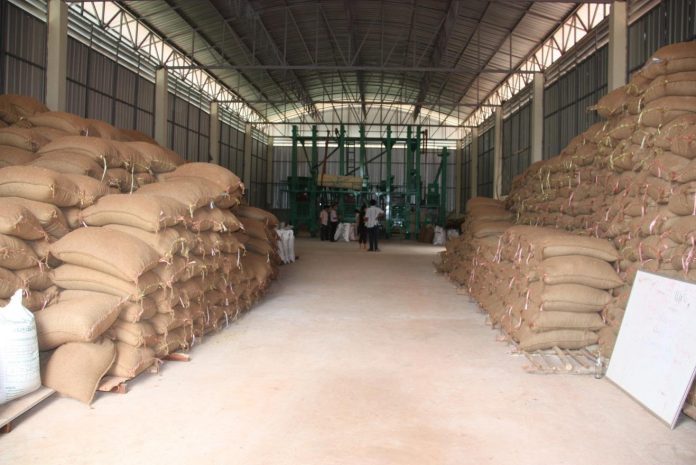The maiden Agri-Business and Policy Linkage Conference for West and Central African countries has ended in Yaounde, Cameroon, hailing the notable efforts made by countries in the region to cut back on the importation of rice from Asian countries. The Chairman of the conference, Dr. Ndiaye Babacar of Guinea particularly cited the cases of Ghana and Nigeria, which resounded all through the meeting.
Nigeria’s Minister of Agriculture, Mr. Audu Ogbeh, who headed the Data and Technical Sub-Committee of the conference, had cited statistics to show that between 2015 and September this year, Nigeria was able to scale down the level of its rice imports by a huge 95 per cent. Mr. Ogbeh stated that as at September 2015, the country was importing six hundred and forty-four thousand, one hundred and thirty-one tons of rice. Two years later, the figure dropped unbelievably to twenty thousand tons.
The case of Ghana is not as pungent but it is equally remarkable. According to the data from the relevant authorities in Accra, in three years, the country’s rice import dipped from three hundred and fifty thousand tons to a mere thirty-seven thousand tons. But the gathering noted that the data referred only to imports that came in through the officially approved channels.
It noted that a great deal of smuggled rice entered Nigerian markets courtesy of the activities of smugglers who seem to be bent to sabotage the federal government’s efforts to curb rice importation entirely. Nigerian officials say the country now has numerous rice plantations and processing mills across the country. According to the Agriculture Minister, there are about twelve point two million Nigerians engaged in the production of rice, and transporting the paddy to the numerous rice mills.
For many observers, the figures merely show that Africa’s resolve to cut down on its rice import bill has gained popularity. The converse side of the policy is that Green Revolution or Operation Looking Inwards is catching on. Agriculture Ministers in Sub-Saharan Africa have blushed at the successes recorded so far in taming the palate of their compatriots for imported rice.
Mr. Ogbeh insisted that the Nigerian government would continue to pursue the drive to leave agriculture in the hands of private investors, explaining that the concern of the government is to create an atmosphere conducive for private organizations and individuals to thrive. He declared that the paddy fields located in Anambra, Ebonyi, Nassarawa, Jigawa and Kebbi States were being operated by individual concerns.
However, in Kebbi State, the Lagos State government initiated an arrangement with the state government for the production of paddy for the rice mills in Lagos. Governor Akinwunmi Ambode recently gave the thumbs-up to the deal, blushing that the vision was working well.















